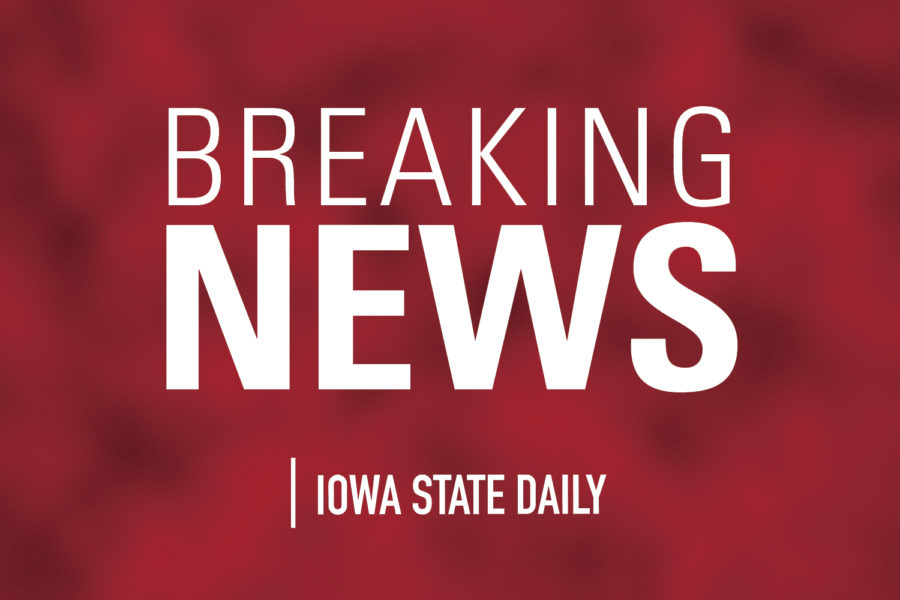Gov. Reynolds announces assistance for farmers, 260 additional positive cases and 15 deaths.
The Office of the President releases new information regarding masks, vaccinations and how the fall 2021 semester will look.
May 28, 2020
Gov. Kim Reynolds discussed the economic impact of the COVID-19 pandemic on Iowa in her Thursday press conference.
“COVID-19 has had an impact on every Iowan in one way or another and farmers and producers are no exception,” Reynolds said. “As the virus hit our country, it was critical that Iowa keep our economy moving, not only for our people but for the world.”
Reynolds said over 10 percent of the nation’s food supply is produced by Iowa farmers. Iowa farmers are the number one producer of corn, soybeans, biofuels, eggs and pork. Reynolds said one-third of the nation’s pork is produced in Iowa, which is approximately 44 million pigs a year.
“Due to COVID-19, Iowa’s agriculture industry could experience a multibillion-dollar impact according to an Iowa State University economist,” Reynolds said. “Our pork industry alone could lose more than two billion dollars, beef more than 700 million, corn nearly 800 million and soybeans nearly 200 million.”
Reynolds said U.S. pork production has lost 25 percent of its processing capacity due to the pandemic. She said this loss in production will create a backup of approximately 600,000 pigs in Iowa.
Iowa Secretary of Agriculture Mike Naig said farmers are finding different options to deal with the backup of animals.
“Producers are exploring every option to alleviate this backlog in animals, including reducing the feed ration to slow down the gain, finding new markets, selling directly to consumers and even making donations through our ‘Pass the Pork’ program, donating animals to food banks and food pantries,” Naig said. “However, the backlog is larger than those solutions can address so producers are already having to and will continue to have to look at the very difficult and emotional decision to euthanize their animals to prevent animal welfare issues.”
Naig said euthanasia is always the last resort because a producer’s goal is to provide healthy animals to feed others.
“When euthanasia is the only option, producers consult with their herd veterinarians, they develop plans to humanely euthanize animals following American Veterinarian Association guidelines and dispose of those carcasses in an environmentally safe way.”
Naig said this week the Iowa Department of Agriculture launched the “Disposal Assistance Program” to provide financial resources to pork producers to properly dispose of animals. He said producers must a confirmation from their veterinarian of an impending animal welfare issue if action is not taken and provide proof of proper disposal receive funding.
“This [backlog] is devastating for Iowa farmers and producers and will be felt at all levels,” Reynolds said. “Consumers are already seeing it at the grocery store with higher prices of meats and limits to how much they can buy, which disproportionately affects lower-income Iowans.”
Reynolds said there are options available for both producers and processors who need assistance due to the pandemic.
There is 9.5 billion dollars available through the CARES Act, which compensates farmers for losses due to price declines that have occurred between Jan. 15 and April 15 and provides support for specialty crops.
There is 6.5 billion available through the Commodity Credit Corporation Charter Act will compensate producers for losses due to ongoing market disruptions. Producers of all eligible commodities will be able to apply through their local FSA office and applications are being accepted through August 28.
Sarah Reisetter, deputy director for the Iowa Department of Public Health, addressed outbreaks in manufacturing and processing facilities.
“Right now the Iowa Department of Public Health becomes aware of outbreaks when business owners tell us or when the state facilitates testing at a particular facility,” Reisetter said. “Businesses are not currently required to report outbreaks to the Department of Public Health. Additionally, Iowa law allows confirmation of outbreaks only when necessary to protect the health of the public.”
Reisetter said the Iowa Department of Public Health has determined that confirming outbreaks at businesses is only necessary when the employment setting constitutes a high-risk environment for COVID-19 transmission.
“Because employers are accessing testing from a variety of sources and not relying solely on the state, our department isn’t aware of all of the testing that is occurring,” Reisetter said. “In addition, case investigation and contact tracing is done in part by public health and in part by the Iowa Department of Public Health.”
Reisetter said there have been reports in other states of scams happening related to contact tracing, she said that someone who is truly working for the Iowa Department of Public Health will not ask for a social security number or any other financial information.
There have been an additional 260 positive cases of COVID-19 in the state of Iowa, making a total of 18,522 cases.
The Iowa Department of Public Health reported 15 additional deaths, for a total of 500 statewide.
An additional 3,189 people have been tested for COVID-19, for a total of 142,330 tests.
Of those that have tested positive, a total of 10,176 have recovered.
The total amount of positive COVID-19 cases in Story County is 98.

















